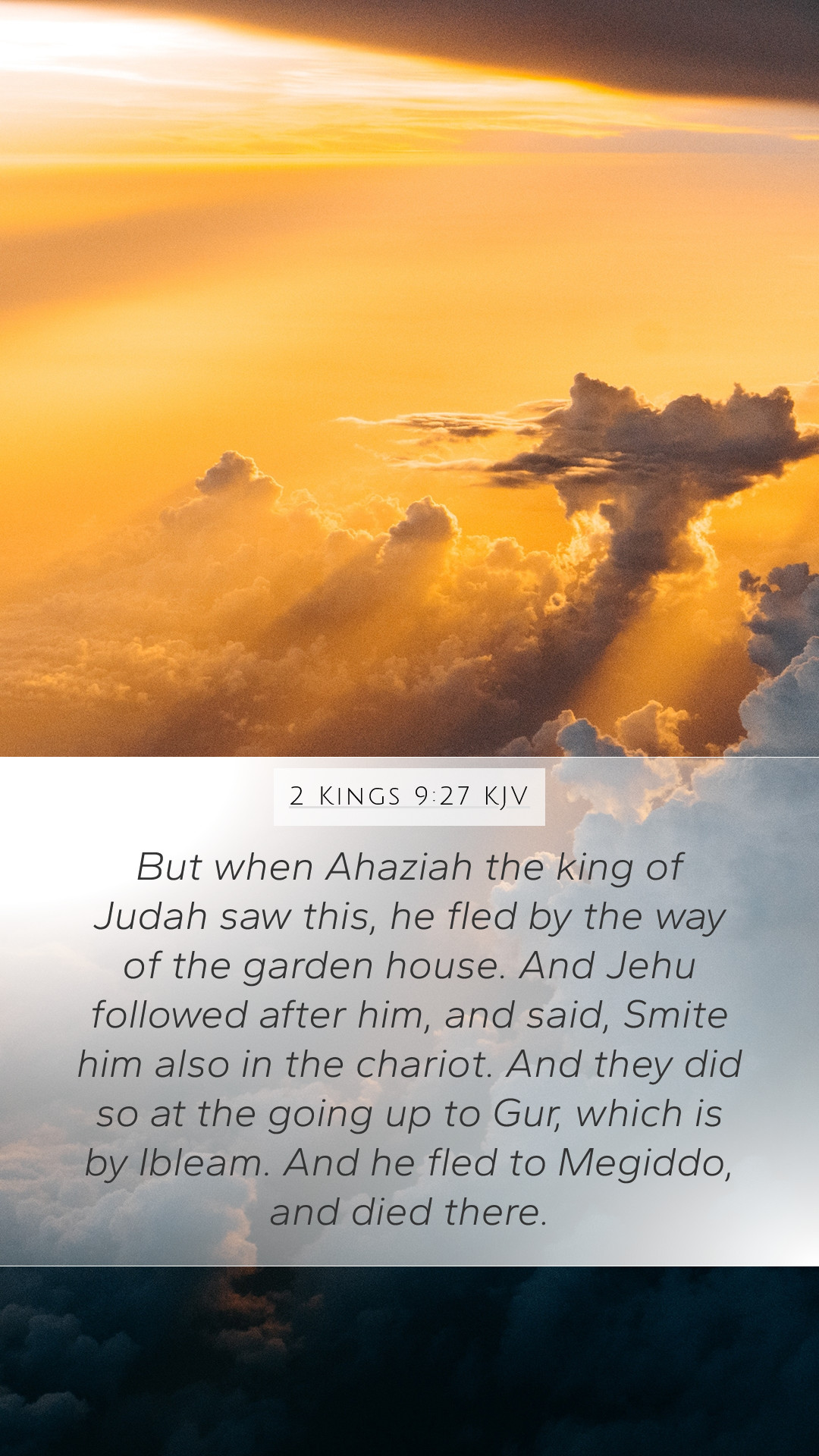Understanding 2 Kings 9:27
Bible Verse: 2 Kings 9:27
Verse Analysis
In 2 Kings 9:27, we witness a pointed moment in the narrative related to the demise of King Ahaziah of Judah. This verse speaks volumes about the fate of those who oppose God's will and provides an essential understanding of divine judgment in the historical context of Israel's kings.
Meaning and Interpretation
This verse states: "But when Ahaziah the king saw Jehu, he fled by the way of the garden house. And Jehu followed after him, and said, “Smite him also in the chariot.” And they smote him at the going up to Gur, which is by Ibleam." This action portrays the end of a king's reign through obedience to God’s command as executed by Jehu.
Historical Context
The significance here lies within the broader narrative of God's orchestration of events to eradicate the house of Ahab, which had led Israel astray. The verse not only emphasizes the judgment on the wicked but also highlights God's sovereignty in choosing leaders who would uphold His plans.
Bible Verse Commentary
- Matthew Henry: He explains that Ahaziah's flight was a direct response to Jehu's rise and the impending doom he represented. Henry emphasizes that Ahaziah, as a descendant of Ahab, was complicit in his family's wickedness, thus justifying his demise.
- Albert Barnes: Barnes argues that this moment was crucial in demonstrating the fulfillment of prophecy regarding the end of Ahab's lineage. He points out that Ahaziah's attempt to escape was futile against the determined judgment of God.
- Adam Clarke: Clarke elaborates on the significance of Jehu being an instrument of God's judgment, asserting that the actions taken against Ahaziah reflect a larger theme of divine justice throughout the scripture.
Application for Today
When reflecting on 2 Kings 9:27, it challenges believers to consider the fate that comes from opposition to divine principles. In the context of modern Bible study, this verse encourages deep examination of one's alignment with God's will through personal actions and decisions.
Insights for Bible Study Groups
This passage opens various topics for discussion in bible study groups, such as:
- The consequences of leadership decisions in spiritual contexts.
- Understanding God's judgment versus human understanding of justice.
- The role of prophetic fulfillment in biblical narratives.
Related Bible Verses
- 1 Kings 21:21: This verse outlines God's promise of judgment against the house of Ahab.
- 2 Kings 10:7: Jehu carries out God's command to annihilate Ahab's family comprehensively.
- Isaiah 1:19-20: Speaking on the blessings of obedience and the consequences of rebellion.
Conclusion
In summary, 2 Kings 9:27 serves as a vivid illustration of God's sovereignty and the moral consequences tied to personal and collective actions. By understanding scripture deeply, such as through Bible verse commentary and historical context, one can apply its critical lessons to daily life, aligning oneself with divine will rather than straying into paths of disobedience.
As you explore this verse and its meanings, consider utilizing bible study materials and resources for a more profound understanding, enhancing both personal faith and shared discussions in online and group settings.


